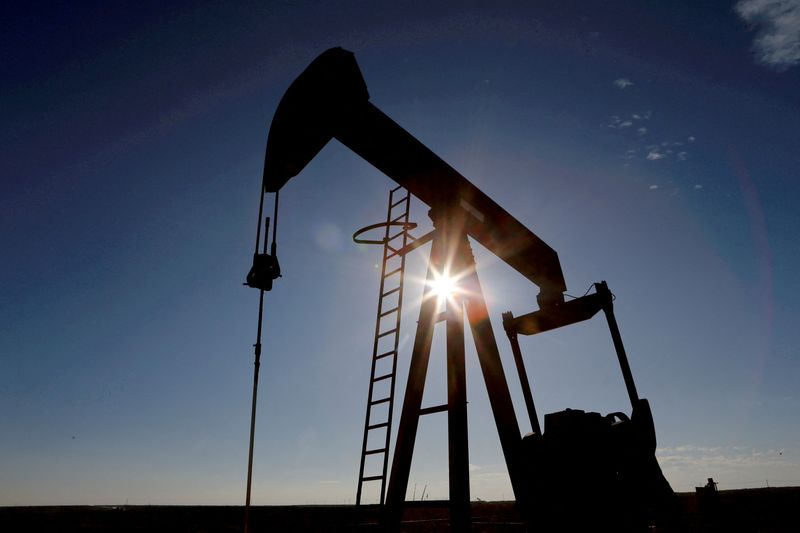By Valerie Volcovici and Nichola Groom
WASHINGTON (Reuters) - Oil and gas companies have asked the Biden administration to exempt hundreds of thousands of the nation's smallest wells from upcoming rules requiring drillers to find and plug leaks of methane, according to industry groups, despite studies showing they emit huge amounts of the powerful greenhouse gas.
The Independent Petroleum Association of America and a coalition of some 20 state drillers' associations have asked the Environmental Protection Agency (EPA) to exclude wells producing less than 6 barrels per day from the rule, arguing that including them would be costly and inefficient, according to the IPAA and the Kansas Independent Oil & Gas Association.
An EPA official declined to confirm the request or discuss details of the upcoming proposal.
Oil and gas production is the source of around a third of the nation's methane emissions and is a key target for the Biden administration as it seeks to combat climate change. The United States is among over 100 countries that have pledged to cut their methane emissions 30% by 2030 from 2020 levels.
Biden's EPA last year unveiled a proposal that would require oil and gas companies to monitor 300,000 of their biggest well sites every three months to find and fix leaks, ban the venting of methane produced as a byproduct of crude oil into the atmosphere, and require upgrades to equipment such as storage tanks, compressors, and pneumatic pumps.
Those rules will most likely take effect in 2023 and are aimed at slashing methane from oil and gas operations by 74% from 2005 levels by 2035, an amount equivalent to the emissions created by all U.S. passenger cars and planes in 2019, according to an EPA summary.
But the rules left aside how the industry should manage methane emissions from its smaller "marginal" wells - those producing less than 15 barrels per day - an issue that will be dealt with in the EPA's supplemental ruling expected in the coming weeks. A source familiar with the administration's plans said the supplemental proposal could be announced at the United Nations climate conference in Egypt in November.
Groups representing the owners of low producing wells have told EPA officials they lack the resources to monitor all their sites with the latest technology. They also say smaller wells often produce only insignificant methane emissions that don't warrant the cost and effort of a monitoring program.
"Deal with the stuff where you know the emissions are coming from, don't just mandate something that goes across the board whether you have a one barrel a day well or a 15 barrel a day well," said Lee Fuller, environment and general strategy officer for the IPAA.
The problem, environmentalists say, is that collectively, the smaller wells produce a massive amount of climate-damaging methane.
Studies from the Department of Energy's National Energy Technology Laboratory (NYSE:LH), and from environmental group EDF (EPA:EDF), both issued this year, show that more than half of methane emitted from U.S. well sites comes from the more than 700,000 sites that produce less than 15 barrels a day.
Exempting wells that produce less than 6 barrels per day would effectively exclude more than 80% of those marginal wells from the EPA rule, according to KIOGA.
"The fact that those studies show that half of the problem comes from these wells shows that you can't leave half of the pie on the table," said Jon Goldstein, who leads EDF's efforts to regulate oil and gas operations.
Industry groups have also pressed the EPA to allow companies to use new or less expensive technology to scan for leaks to reduce costs, instead of optical gas imaging cameras that can cost tens of thousands of dollars and require intensive training.
The supplemental ruling could also address the industry's use of flaring, or the deliberate burning of excess natural gas from well sites, which can also lead to methane emissions.
